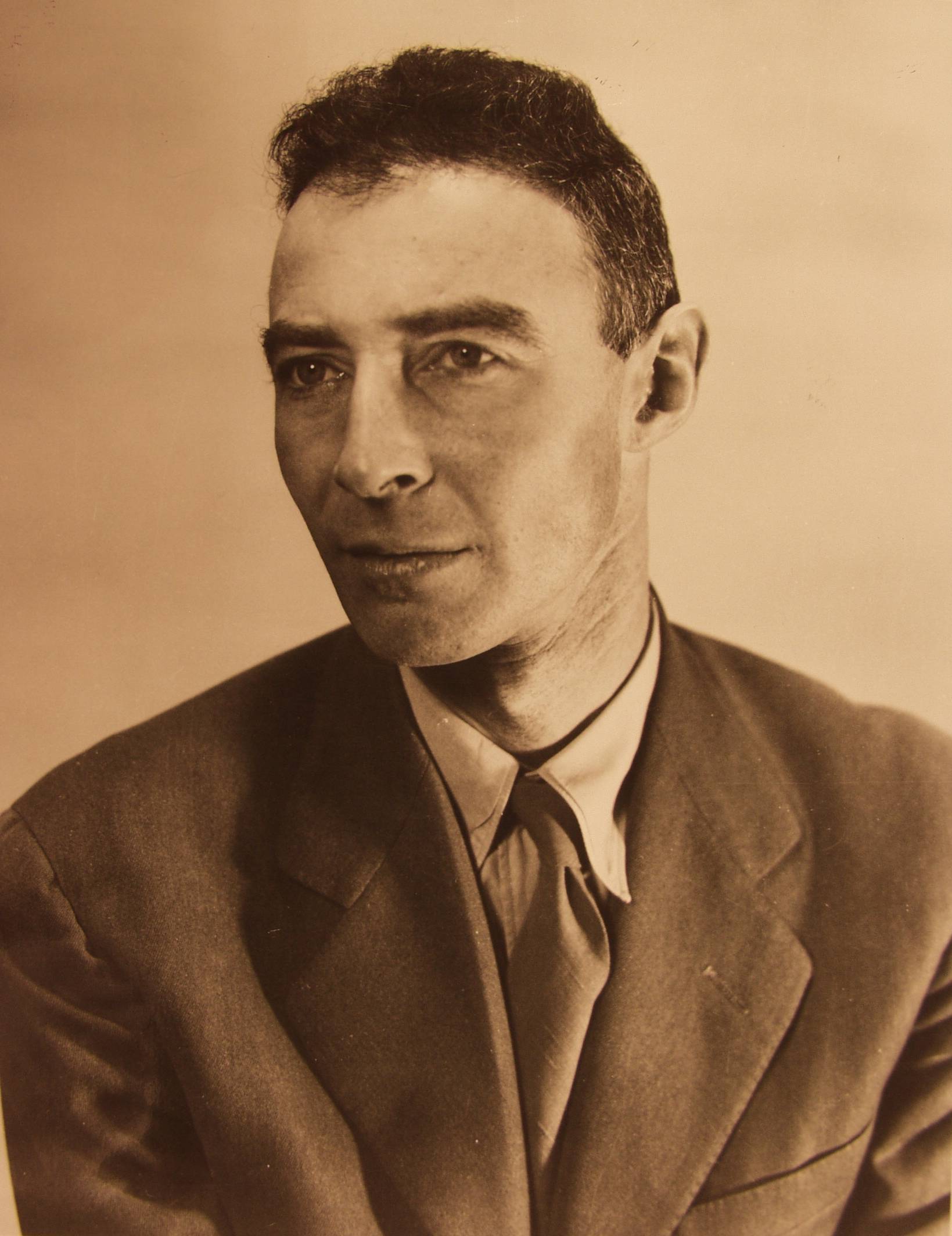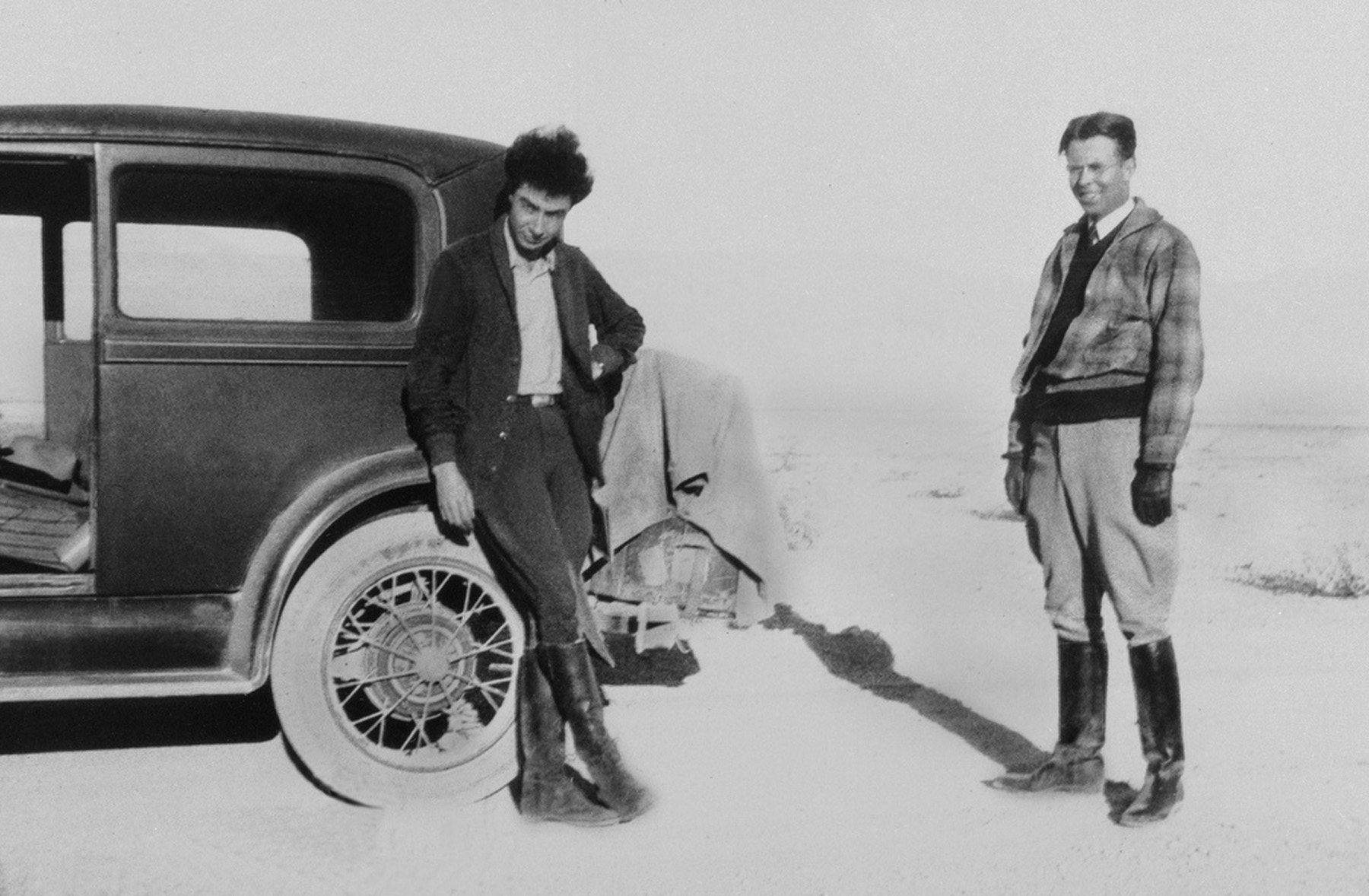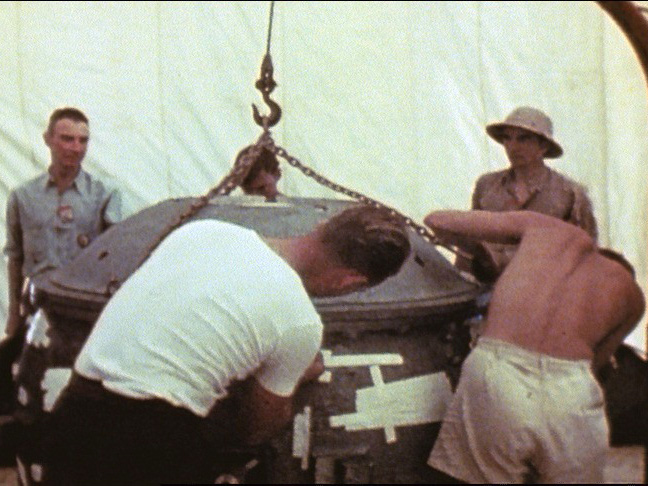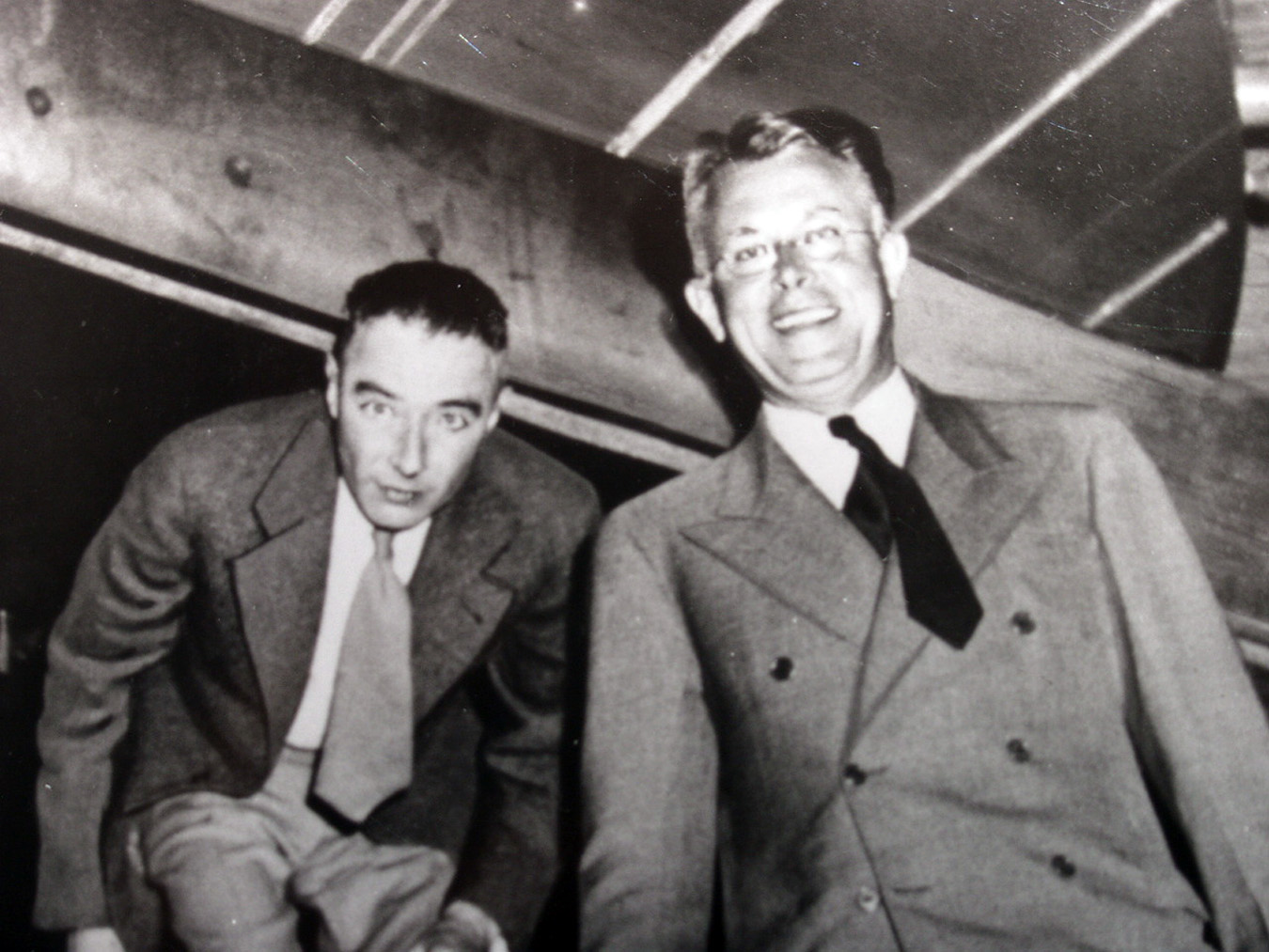April 22, 2018 would have been J. Robert Oppenheimer’s 114th birthday. As director of the Los Alamos Laboratory during the Manhattan Project, Oppenheimer proved to be an extraordinary choice. During the McCarthy era, however, Oppenheimer’s past associations with Communists led to the Atomic Energy Commission’s controversial revocation of his security clearance in 1954. Oppenheimer died in 1967 at age 62.
Many of the Manhattan Project veterans we have interviewed for our “Voices of the Manhattan Project” website fondly recall working with Oppenheimer at Los Alamos. Here are a few selections. Also listen to a 1965 interview with Oppenheimer by journalist Stephane Groueff on “Voices” here.
Ben Diven: He was totally wrapped up in his teaching and he loved his students. I always felt that he was someone who had a real interest in every single person that he was involved with. He was amazing in that he remembered people’s names and faces; if he had only seen some technician once he would remember that person. He prowled the hallways at night to drop in on laboratories, see what people were doing, and he remembered what they were doing. Everybody had a feeling with Oppenheimer that this was somebody who really cared. It made working here just, well—you could almost call it a pleasure, even though it was much harder work and more frantic than anything we had ever experienced before, but we had a real feeling of belonging.
 Scientists are just as vain as anybody else, and you have all these brilliant scientists, each one of whom is sure he’s smarter than any of the others. They’re not necessarily the easiest people to persuade to work on what, let’s say Oppenheimer thinks they ought to be working on. But he was very, very good at getting all these people to work together instead of squabbling among each other.
Scientists are just as vain as anybody else, and you have all these brilliant scientists, each one of whom is sure he’s smarter than any of the others. They’re not necessarily the easiest people to persuade to work on what, let’s say Oppenheimer thinks they ought to be working on. But he was very, very good at getting all these people to work together instead of squabbling among each other.
Peggy Bowditch: The thing that impressed me, chicken pox was going around. Oppie had been so carefully brought up, he had never had chicken pox. So he got it as an adult, and he was really sick. But even though he felt like nothing, he would still go to work as soon as he was no longer contagious.
In December of ’53, my father [Admiral William “Deak” Parsons] heard at a cocktail party that Oppie’s security clearance had been taken away. He was so upset that he came home and had a heart attack. He died the next morning, a week after his 52nd birthday.
Haskell Sheinberg: Oppenheimer was the one, I think, that really inspired all of us to interact with everybody else that we needed to do our job better. He certainly motivated us. The other good thing was that he trusted everybody to do their best and to do it honestly and help others, and be safe; he did stress that. Everybody tried to adhere to Oppenheimer’s way that he managed the lab.
Dimas Chavez: Dr. Oppenheimer worked at Tech Area One right off on Trinity Road, and I would station myself directly outside the guard house and he would come by and I would sell him papers, Santa Fe New Mexican. Soon he got to know me, and he’d looked at me and say, “Hello, Dimas. I’m Dr. Oppenheimer.”
 Well, I told Dad about this and he said, “Nah, nah, nah. You don’t know Dr. Oppenheimer. There’s just no way!” So one day Mom asked Dad to go to the trading post and pick up some items. And I am in line right behind Dad. I hear a group of people behind me talking, and I heard that voice. I turned around and there is Dr. Oppenheimer and he is chatting with some people. And he looked at me and he recognized me, and he said, “Hello, Dimas.”
Well, I told Dad about this and he said, “Nah, nah, nah. You don’t know Dr. Oppenheimer. There’s just no way!” So one day Mom asked Dad to go to the trading post and pick up some items. And I am in line right behind Dad. I hear a group of people behind me talking, and I heard that voice. I turned around and there is Dr. Oppenheimer and he is chatting with some people. And he looked at me and he recognized me, and he said, “Hello, Dimas.”
And my Dad heard this and then the next thing is, “Dr. Oppenheimer, I would like you to meet my father, Trinidad Chavez.”
It was the greatest moment of my life. Dad could not believe it. He just could not believe it.
James Schoke: On my first train trip to Los Alamos, Oppenheimer’s assistant invited me for wine, cheese, and conversation at Robert Oppenheimer’s cabin. Here I am, a twenty-year-old at this point, and it was very exciting. So I went, and apparently it was Oppenheimer’s practice to do this on the train regularly. And there were, oh, seven men, standing around his compartment and talking and drinking. Of course there was no talk about the project or what we were doing or where were we going. Oppenheimer liked to recite poetry, and he recited some poetry. He invited me to call him “Oppie” when I was introduced to him.
 I was just absolutely amazed. This erudite man, who was so humble and willing to have a young twenty- year-old nobody as his guest. It really was a great experience.
I was just absolutely amazed. This erudite man, who was so humble and willing to have a young twenty- year-old nobody as his guest. It really was a great experience.
Verna Hobson (Oppenheimer’s secretary): He had a very intense relationship to the written word. He probably had read more poetry and could quote more poetry than most people you meet.
Julie Melton: He had that quality of charm, of being able to be really interested in someone else if they had something intelligent or important to say. He was incredibly charming.
Priscilla McMillan: The catalyst was Robert Oppenheimer. He knew how to deal with people he had never dealt with, types of people he had never dealt with before. Because there were many, many workmen on the project who did all kinds of things. He knew what all of them did. He could talk to them in their own language, take a totally commanding interest in what they were doing. He respected the people who worked there for their decisions.
He listened to them. He took their views into account, and they all felt they were being heard. So he was a miraculous director in a way that no one who knew him earlier ever thought he could be, ever foresaw. It was probably the happiest time of his life.
Roy Glauber: Oppenheimer commanded not just the loyalty but the deep respect of everybody who was at Los Alamos, and I cannot think of anyone else who would have succeeded as he did in that sense.
John Manley: He was a very extremely perceptive individual. I think he was very adept at using people. It sounds like a harsh way of saying it, but let me add that I felt I was being used, but it was pleasant. He had a way about him, you see, which made you feel good about being used by him.
Robert Christy: It was then in probably either late December or January of ’43 that Oppenheimer came around recruiting for Los Alamos. He asked if I would join him in Los Alamos. I said I would be delighted because like most of his students, I would more or less follow him to the ends of the earth. I was very pleased to be able to go and help him.
Dorothy Vanderford (Oppenheimer’s granddaughter): I see my grandfather as very brave and honest. My Dad has always been very clear that he was loyal and patriotic, in the genuine sense. I really do believe that, that he loved the country and loved what he was doing.
Harold Cherniss: He was very sharp intellectually, one of the sharpest people I have ever seen or heard of, intellectually. He had very wide interests, and was interested in almost anything you could think of. When he became interested in anything, he very quickly picked up an enormous amount of knowledge about it. He remained that way, really, to the end, when he wanted to be.
He could also be very cruel in his remarks. He did not suffer fools gladly, of course. Being intellectually sharp as he was, keen, or seeing the point of things almost immediately, he tended to irritate people who were more on his level. He was always very, very kind and considerate to anybody below him, if I may use that term. But not at all to people who might be considered his intellectual equals. This, of course, irritated people, made people very angry, made enemies.





